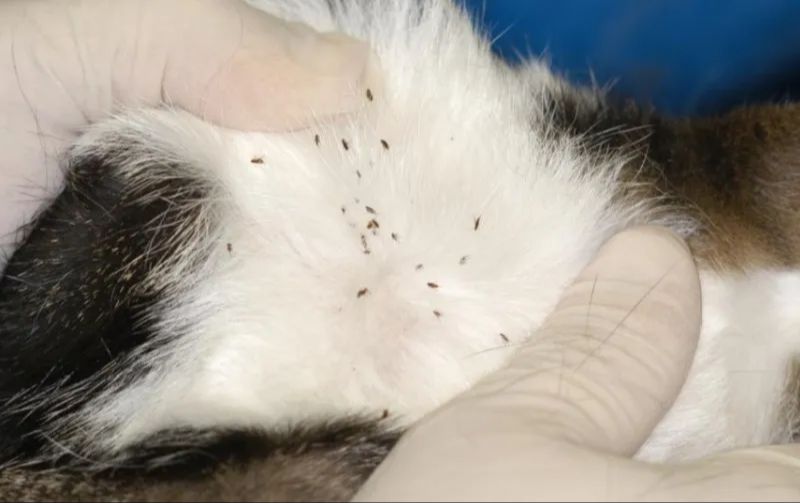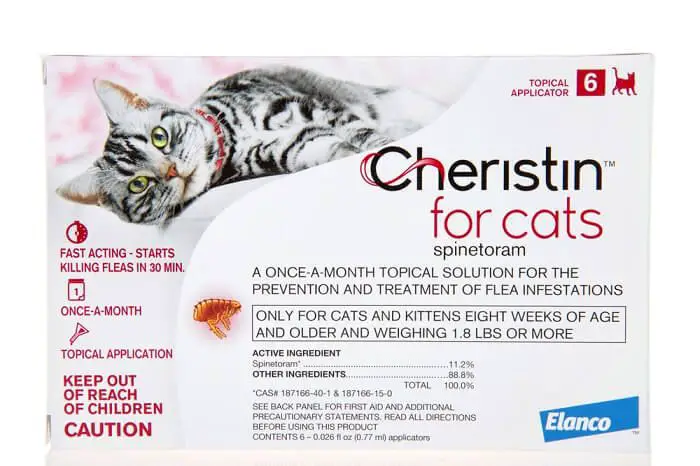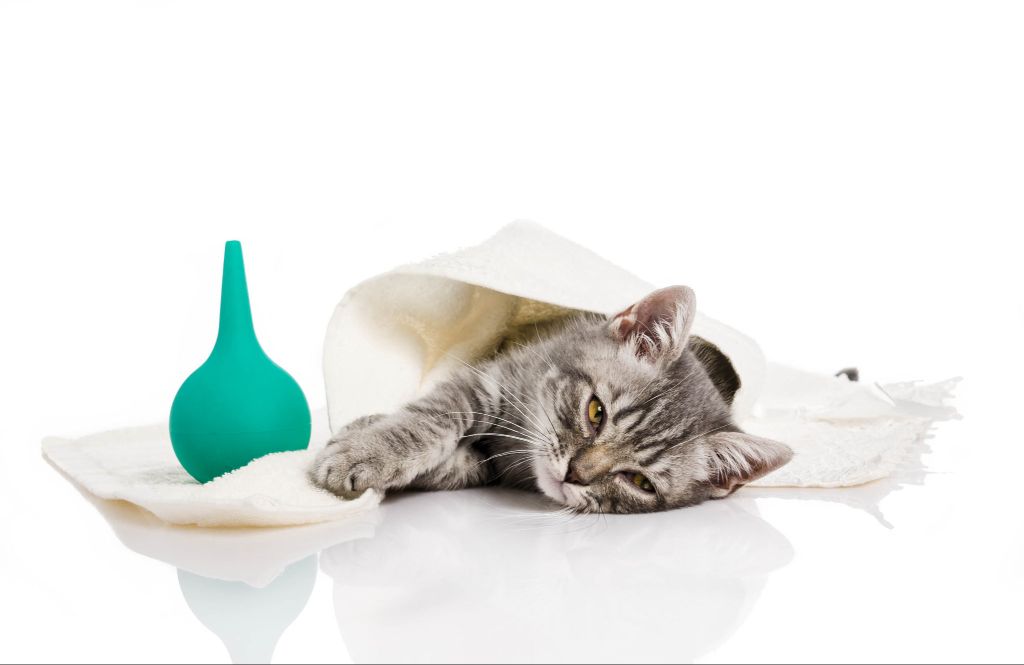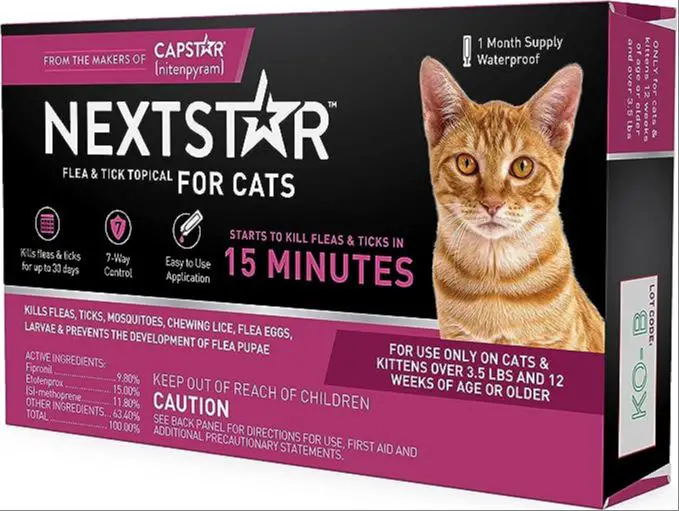Cat flea medicine is an important way to protect cats from flea infestations. Fleas can cause skin irritation, anemia, and transmit diseases. Cat owners use monthly spot-on treatments or oral medicines to kill and prevent fleas. However, these products have expiration dates and can lose effectiveness over time. Knowing if and when cat flea medicine expires is crucial to ensuring your cat’s health and comfort. Expired flea treatments may not fully eliminate fleas, allowing infestations to persist and spread. This article will examine cat flea medicine expiration dates, associated risks, proper storage, and alternatives to provide cat owners the information they need to make informed decisions about flea control.
How Flea Medicines Work
The most common active ingredients in cat flea medicines are pyrethroids, insect growth regulators (IGRs), and neonicotinoids. These ingredients work in different ways to kill fleas and prevent flea infestation on cats:
Pyrethroids like permethrin and etofenprox attack the nervous system of fleas, paralyzing and eventually killing them. They are effective at killing adult fleas quickly.

IGRs like methoprene work by mimicking insect growth hormones, preventing flea eggs and larvae from developing into adult fleas. This breaks the flea life cycle.
Neonicotinoids like imidacloprid bind to nicotinic acetylcholine receptors in the flea’s nervous system, causing paralysis and death. They are often combined with IGRs for comprehensive protection.
Topical flea treatments spread these active ingredients over the cat’s skin from neck to tail. This coats the cat’s coat in the medicines, allowing them to kill and repel fleas effectively. Oral and collar treatments provide whole-body protection as well.
By using multiple active ingredients that attack fleas in different ways, modern cat flea medicines provide thorough and fast-acting protection against flea infestations.
Expiration Dates on Flea Medicines
Flea medicines like Frontline Plus and Nexgard have expiration dates printed on their packaging that signify the end of their shelf life. According to veterinarians, these expiration dates are determined by the drug manufacturers based on stability testing (Budgetvetcare). This testing analyzes how the chemical compounds in the medicines degrade over time under various storage conditions.
The expiration date indicates the point at which the manufacturer can still guarantee the full potency and efficacy of the active ingredients if the product has been stored properly. Effectiveness of flea treatments gradually declines as the ingredients start breaking down. While medicines don’t immediately go bad on their expiration date, their ability to safely and effectively kill fleas and ticks diminishes over time past this date.
Some sources indicate Frontline Plus products do not have labeled expiration dates. However, Frontline’s maker recommends using the treatments within 36 months of the manufacturing date stamped on packages (Hyaenidae). So the manufacturing date essentially serves as an expiration date marker.
Risks of Using Expired Flea Medicines
Using expired flea medicines can pose a number of risks for your cat. The efficacy of flea treatments diminishes over time. Flea medicines contain chemicals that break down over time. An expired medicine may no longer contain enough of the active ingredient to effectively kill fleas (source).

If the medicine is less effective at killing fleas, your cat may continue to suffer from an infestation even after treatment. Fleas can lead to skin irritation, infections, and anemia in cats. A serious infestation can even be life threatening.
Expired flea medicines may also cause adverse reactions in cats. Chemicals can oxidize and degrade over time, becoming more concentrated. This can lead to redness, itchiness, vomiting, and other side effects after application (source).
Neurotoxic effects are also possible with degraded topical treatments. Seizures, tremors, and lethargy have been reported in some cases of using expired flea control products. It’s best not to take risks with your cat’s health and only use unexpired medications.
Signs Medicine Has Expired
There are a few key signs that flea medicine may have expired and is no longer effective or safe to use:
1. Changes in texture. Expired flea medicine may have a grainy or lumpy consistency rather than the smooth, creamy texture when fresh. This can indicate the active ingredients are breaking down.
2. Changes in smell. Fresh flea medicine usually has no odor or a mild chemical scent. An expired product may smell rancid, sour, or have a stronger chemical odor.
3. Changes in appearance. The product may separate, change color slightly, or crystalize. The product packaging may also appear dried out or stained.
4. Reduced efficacy. If fleas and ticks persist after treatment with the medicine, it likely no longer contains effective levels of the active ingredients.
It’s important to watch for any of these signs that indicate the medicine is no longer potent and should not be used. Discard expired flea medicines in your household trash, not down the drain. Using expired products risks ineffectiveness and may cause skin irritation in pets.
If in doubt about usability, the safest option is to acquire fresh flea medicine rather than risk using an expired product. Properly stored, unopened topical flea treatments generally last 2-3 years from the manufacturing date.
Proper Storage
Proper storage is crucial for maximizing the shelf life of flea medicines. According to PetMD, flea medications should be stored in a cool, dry place away from excess heat and moisture. Storing flea medicines in an area that is too hot or humid can cause the ingredients to break down more quickly. The ideal storage temperature is below 77°F.

Medicines should be kept in their original containers with the lids tightly closed to avoid exposure to air, which can also degrade the active ingredients. PetMD recommends storing flea medications away from light as well, such as in a cabinet or enclosed shelf rather than on the countertop. Make sure medicines are kept safely out of reach of children and pets.
According to MedVet, flea medicines should not be stored in the refrigerator or freezer, as temperature fluctuations can affect drug potency. Storing flea medications properly helps maintain efficacy and prevent accidental ingestion or skin contact.
When in Doubt, Throw it Out
Even if you can’t find an expiration date, it’s best to err on the side of caution when it comes to flea medicines. Chemical flea treatments contain potent insecticides that can lose effectiveness and become unstable over time. Using a product that is past its prime may not fully eliminate your cat’s flea infestation and could even potentially cause adverse reactions.

According to veterinarians, if you can’t find an expiration date or you are unsure how old the medicine is, it is wisest to simply discard it and buy a new supply (https://www.oakhurstvet.com/blog/can-i-use-expired-pet-medications/). While you may be trying to avoid waste, using an expired or questionable product could result in needing repeat treatments if it is no longer potent enough to fully kill fleas and larvae. This ends up costing more money and time in the end.
When dealing with your cat’s health and wellbeing, it’s better to err on the side of caution. If there is any doubt at all about the integrity or age of your flea medicine, go ahead and replace it right away. The few extra dollars spent could protect your cat from ineffective treatment and potential medical risks.
Alternatives to Chemical Flea Treatments
There are several natural and non-chemical alternatives to commercial flea treatments that pet owners can try. These methods may take more effort than chemical treatments, but avoid exposing cats to harsh pesticides.
One natural flea treatment is bathing cats in diluted lemon juice or apple cider vinegar. The acidity helps repel and kill fleas. Mix 1 part lemon juice or vinegar with 3 parts water and carefully wash the cat, avoiding eyes and ears. Rinse thoroughly afterwards (Source).
Essential oils like lavender, peppermint, eucalyptus, and citrus oils can also deter fleas when diluted and applied to the cat’s coat. Always heavily dilute oils before use and test for skin irritation first (Source).
Lastly, regular grooming with a flea comb can help remove fleas and eggs. Comb thoroughly around the head, neck, and base of the tail, where fleas congregate. Drop any collected fleas into hot, soapy water to kill them (Source).
While natural treatments may not fully eliminate a flea infestation like chemical treatments, they provide safer alternatives for cats sensitive to traditional pesticides.
Conclusion
Properly following expiration dates on flea medicines is critical to protecting your cat’s health. This article recapped the key points on how flea medicines work, what expiration dates indicate, the risks of using expired products, signs that a medicine may be expired, proper storage guidelines, and when in doubt, throwing it out and using alternative treatments. Although an expired product may still retain some effectiveness, potency and safety declines over time after the expiration date. Using expired medicines risks skin irritation, lack of effectiveness allowing flea infestations to persist, and even toxicity in extreme cases. Checking expiration dates and adhering to them ensures your cat receives the full protective benefits these products are designed to provide.
Following expiration dates is one simple way cat owners can fulfill their responsibility to provide safe, effective preventative care. While an occasional missed dose of flea medicine can be remedied, using expired products repeatedly can jeopardize your cat’s health and comfort. Protect your furry companion as the label directs – and if in doubt, throw it out.
References
External flea control resources for further reading:
- PetMD – Using Expired Flea and Tick Products
- AKC – Are Expired Flea and Tick Treatments Still Safe?
- FDA – Flea and Tick Products
- ASPCA – Natural Flea Control
Always consult your veterinarian before using any flea control products on your pet.
